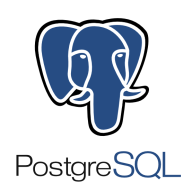

PostgreSQL and Cassandra are prominent players in the database management system category, each offering unique advantages. PostgreSQL stands out for its adherence to SQL standards and robust feature set, while Cassandra excels in scalability and handling high data volumes. Based on the comparison, PostgreSQL's rich functionality and cost-effectiveness give it an edge for feature-rich applications, whereas Cassandra's superior scalability is ideal for large-scale data needs.
Features: PostgreSQL boasts SQL standards compliance, extensive complex query support, and ACID compliance, making it ideal for transactional applications. It supports asynchronous commit and offers strong scalability for write-intensive tasks. Cassandra focuses on handling vast data volumes with high availability, thanks to its peer-to-peer architecture. Its real-time analysis capability and linear scalability are valuable for write-heavy workloads.
Room for Improvement: PostgreSQL could enhance its read-only query handling, offer better support for SQL commands like 'INSERT IGNORE,' and address the absence of unsigned integer data types. It also lacks sophisticated built-in clustering features. Cassandra's management complexity is a challenge, with room to improve query optimization and integration capabilities, simplifying setup and maintenance.
Ease of Deployment and Customer Service: Both PostgreSQL and Cassandra are flexible across on-premises, hybrid, and cloud environments. PostgreSQL benefits from a strong community with ample documentation, though official customer service is not as direct as paid services. Cassandra is community-driven but lacks a centralized knowledge base, relying on open-source support.
Pricing and ROI: Both PostgreSQL and Cassandra provide open-source solutions with minimal direct costs. PostgreSQL offers lower hardware and operating expenses due to GPL licensing, while Cassandra's open-source nature is cost-effective; however, DataStax Enterprise may incur additional support costs. Both achieve significant ROI from the lack of licensing fees and adaptable scalability.


Cassandra is a distributed and scalable database management system used for real-time data processing.
It is highly valued for its ability to handle large amounts of data, scalability, high availability, fault tolerance, and flexible data model.
It is commonly used in finance, e-commerce, and social media industries.
PostgreSQL is a versatile and reliable database management system commonly used for web development, data analysis, and building scalable databases.
It offers advanced features like indexing, replication, and transaction management. Users appreciate its flexibility, performance, and ability to handle large amounts of data efficiently. Its robustness, scalability, and support for complex queries make it highly valuable.
Additionally, PostgreSQL's extensibility, flexibility, community support, and frequent updates contribute to its ongoing improvement and stability.
We monitor all Vector Databases reviews to prevent fraudulent reviews and keep review quality high. We do not post reviews by company employees or direct competitors. We validate each review for authenticity via cross-reference with LinkedIn, and personal follow-up with the reviewer when necessary.